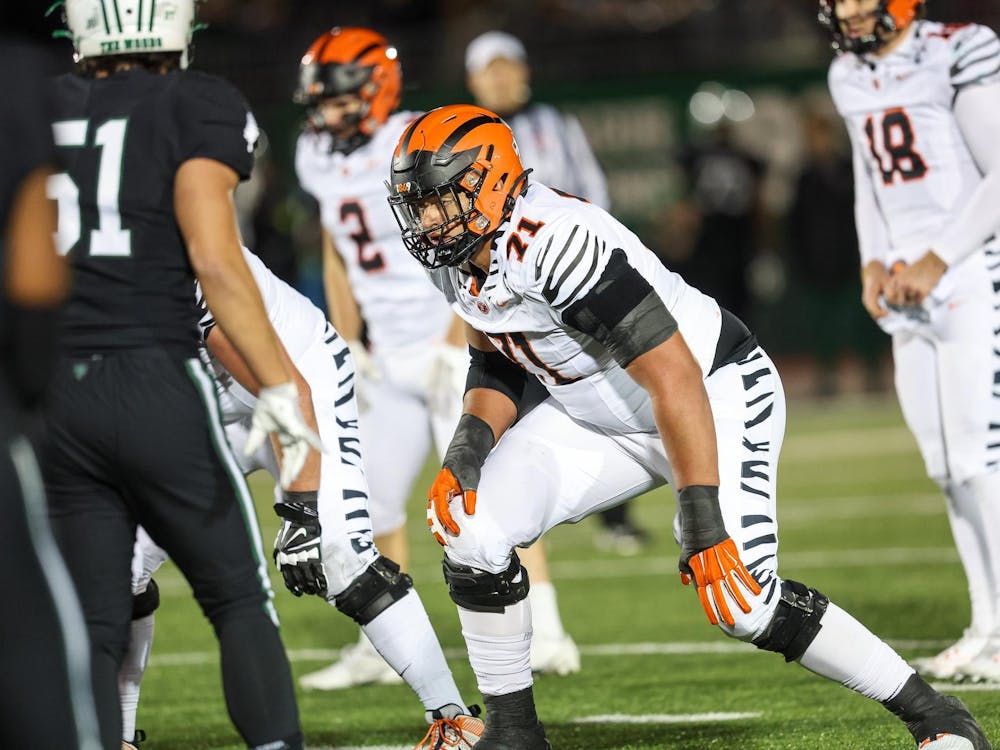I mention a mundane matchup to show how trivial most sporting events are. Sure, there are international competitions, such as the recent ICC Cricket World Cup or the ubiquitous FIFA World Cup every four years, that do maintain unique significance; a country’s history is often projected onto the event, and that country’s historical relationship with an opponent (particularly any adversarial past) is emphasized tremendously. Most domestic league matches, however, mean little more than adding to the lore of a local rivalry.
On this past Tuesday, however, a sporting event of great significance played out, and it did not occur in this country. Japanese baseball league Nippon Professional Baseball, after delaying its opening day for three weeks, finally began the season with a matchup between the Tohoku Rakuten Golden Eagles and the Chiba Lotte Marines.
In terms of baseball, the Golden Eagles were coming off a season as the last-place team in the Pacific League, one of two leagues in NPB, whereas Chiba Lotte had come off a dramatic victory in the Japan Series (the Japanese equivalent of the World Series) against the Chunichi Dragons, NPB’s best team in the regular season (Chiba Lotte won 4-2-1, and yes, that is not a typo: Japan allows ties in its championship series).
Surprisingly, the Golden Eagles won 6-4, giving its fans optimism that new manager Senichi Hoshino can lead the team to a better finish than its last-place result in 2010. For the Chiba Lotte, the result was like the beginning of the season for last year’s World Series winner, the San Francisco Giants: a disappointing, albeit close, loss to put in the past.
More important, however, than a single game in a 144-game season was the resonant impact of starting the Nippon Japanese baseball season. The opening game had been delayed and delayed again due to the powerful earthquakes, tsunamis and nuclear reactor failures the Japanese people have endured over the past three weeks.
In such situations, sports play a new and refreshing role. Baseball games are not the object of your furious focus in order to win some money in a fantasy league, nor are sporting events a method of detoxification after a hard week of work; in situations of crisis, sports provide solace and encourage optimism that normalcy is to come.
Domestically, we have not had an entirely identical situation to what Japan has suffered, but the tragedy of Sept. 11 provides a somewhat analogous situation. Both the MLB and the NFL delayed their seasons by a week, and when play resumed, American patriotism was in full force.
My comments are not to justify patriotism, but rather to demonstrate that in arduous times, sports uniquely become vehicles of social cohesion. A class I once took discussed whether the intrinsic meaning of an object changes in a new context. Philosophically, some argued, the object remains inherently identical. Others, however, pointed out that, regardless of whether the intrinsic meaning changes in the philosophical world of thought, human interaction and life does not render itself wholly by the axioms of philosophy, so perhaps the intrinsic meaning of an object does change when the context does.
Some would argue that during nuclear failure and natural disaster, the NPB opener was simply a baseball game, with no greater meaning or ramifications for Japanese citizens.
Yet followers of the game have contextualized this event as one of significance. The New York Times reported that one fan drove over eight hours to watch the game and said, “Usually, I’m so busy I can’t get to opening day, but there was no way I was going to miss it this year.” Former ambassador to the United States and current NPB commissioner Ryozo Kato also stated that he hoped baseball would signal to the United States and international community that Japan would be fine.
As a sports fan, I typically shrug off the greater significance of sports; that’s what philosophy or history courses are for. Yet in treacherous times of suffering, athletic events serve a unique social purpose as a source of solace and perhaps affirmation.








